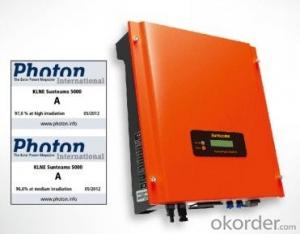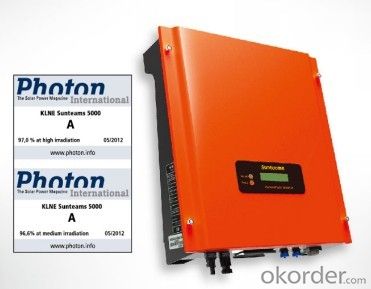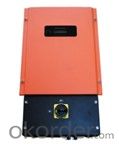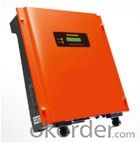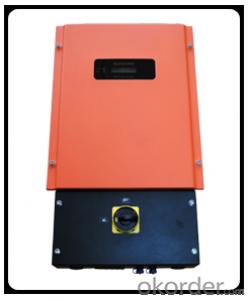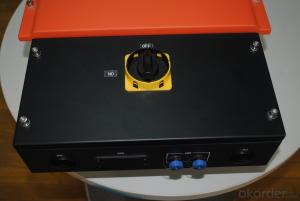Sunteams 3000 12V Solar Inverter Battery Charger with WiFi US Standard
- Loading Port:
- Shanghai
- Payment Terms:
- TT OR LC
- Min Order Qty:
- -
- Supply Capability:
- 10000 set/month
OKorder Service Pledge
Quality Product, Order Online Tracking, Timely Delivery
OKorder Financial Service
Credit Rating, Credit Services, Credit Purchasing
You Might Also Like
Sunteams 1500,2000,2500,3000,3600,4000,4600,5000
Sunteams US 1500,2000,2500,3000,3600,4000,4600,5000
1MPPT, single phase
IP 65
50Hz & 60 Hz
with Plug in wifi/ wifi box
with wire box/ without wire box
UL certified
■ For countries with UL certification (UL 1741 / IEEE 1547)
■ For countries with UL certification (UL 1741 / IEEE 1547)
Efficient
■ The CEC efficiency of the inverter can reach 95.0 %-97.5 %
■ Transformerless desi
■ The CEC efficiency of the inverter can reach 95.0 %-97.5 %
■ Transformerless desi
Simple
■ ‘Plug and play’connection for easy installation and maintenance
■ Designed for hanging with simple and easy installation
■ Fanless cooling concept
■ ‘Plug and play’connection for easy installation and maintenance
■ Designed for hanging with simple and easy installation
■ Fanless cooling concept
Communicative
■ RS232/RS485 interfaces as standard
■ Optional Bluetooth technology
■ RS232/RS485 interfaces as standard
■ Optional Bluetooth technology
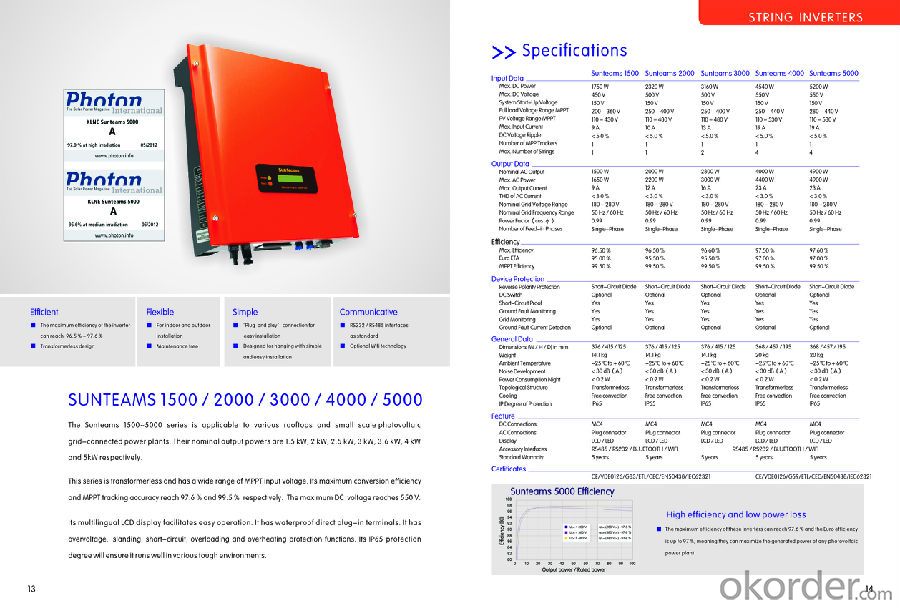
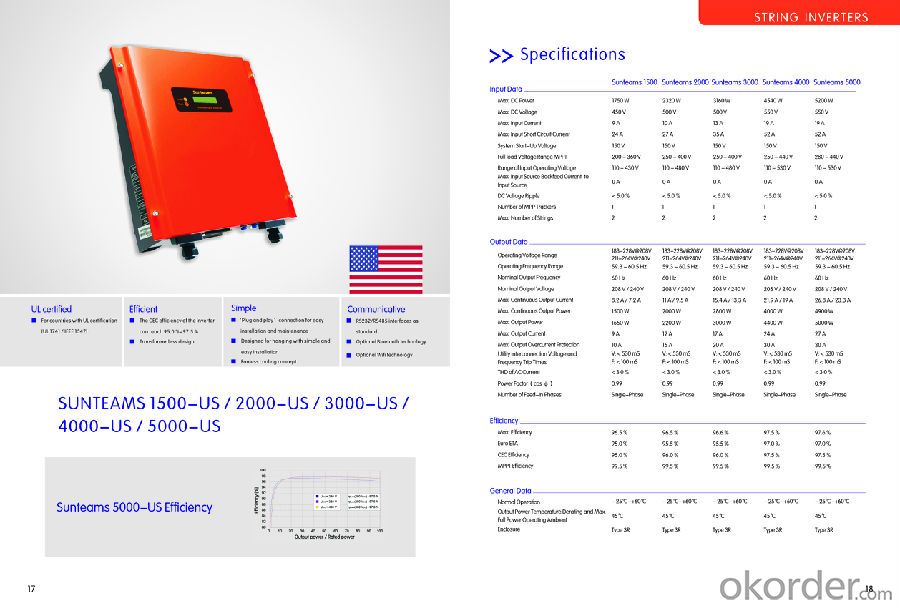
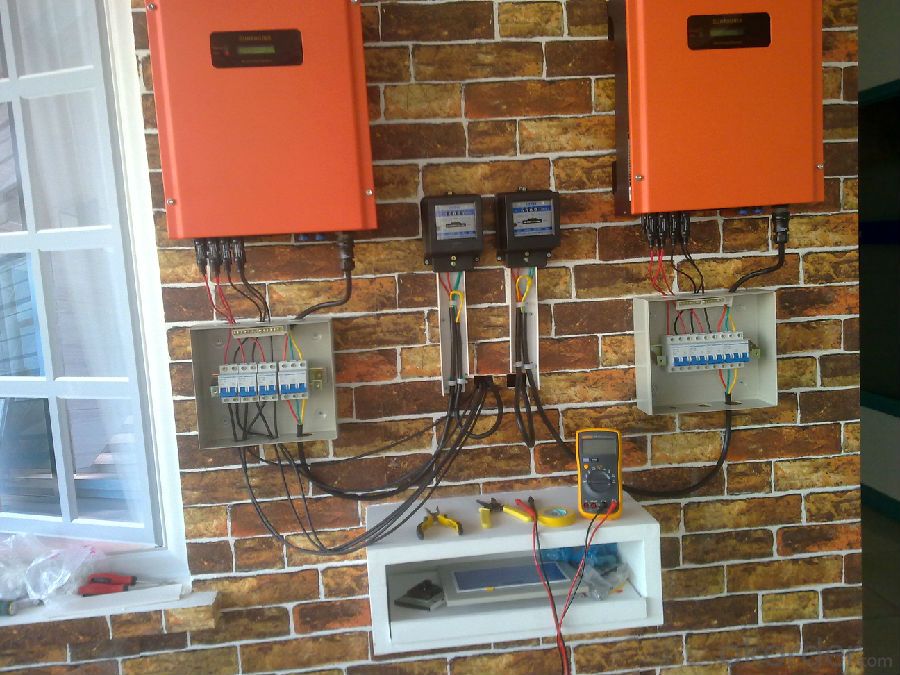
- Q: How do you calculate the efficiency of a solar inverter?
- To calculate the efficiency of a solar inverter, you need to divide the output power by the input power and multiply it by 100. The formula is: Efficiency = (Output Power / Input Power) * 100.
- Q: What is the difference between a string inverter and a micro inverter?
- A string inverter is a type of solar inverter that is connected to a series of solar panels, converting the DC power produced by the panels into AC power for use in homes or businesses. A micro inverter, on the other hand, is installed on each individual solar panel, converting the DC power into AC power at the panel level. The main difference between the two is that a string inverter handles the entire string of panels, while a micro inverter operates on a per-panel basis. This means that micro inverters offer advantages such as increased energy production, better module-level monitoring, and improved system flexibility, but they can also be more expensive and complex to install compared to string inverters.
- Q: How does a solar inverter impact the payback period of a solar system?
- A solar inverter plays a crucial role in converting the direct current (DC) electricity generated by solar panels into usable alternating current (AC) electricity for household or grid consumption. The efficiency and performance of the solar inverter directly impact the overall energy production of the solar system. A higher quality and more efficient solar inverter can maximize the electricity generation, reducing the payback period of the solar system. Conversely, a low-quality or inefficient solar inverter may result in lower energy output, potentially extending the payback period of the solar system.
- Q: How does a solar inverter affect the overall aesthetics of a solar installation?
- A solar inverter does not directly impact the aesthetics of a solar installation as it is typically installed indoors or in an inconspicuous location. However, a well-designed solar inverter system can contribute to a cleaner and more organized appearance of the overall solar installation by reducing the need for visible wiring and ensuring efficient energy conversion.
- Q: How do you choose the right size solar inverter for a specific solar power system?
- To choose the right size solar inverter for a specific solar power system, you need to consider the capacity of your solar panels, the maximum power output they can generate, and the electrical load you intend to connect to the inverter. Matching the inverter's capacity with the total power output of your panels ensures optimal performance and prevents overloading. It's also crucial to consider any future expansions or changes in energy requirements to select an inverter that can accommodate potential growth. Consulting with a professional or using online calculators can help determine the appropriate size for your solar inverter.
- Q: Are there any maintenance requirements for solar inverters?
- Yes, solar inverters do require regular maintenance to ensure optimal performance and longevity. This can include cleaning or replacing air filters, inspecting and tightening electrical connections, checking for any physical damage or corrosion, and updating firmware or software as needed. Additionally, monitoring the inverter's performance and generating reports can help identify any issues or inefficiencies that may require maintenance or repairs.
- Q: What is the role of a voltage control unit in a solar inverter?
- The role of a voltage control unit in a solar inverter is to regulate and stabilize the voltage of the direct current (DC) power generated by the solar panels before it is converted into alternating current (AC) power. It ensures that the voltage remains within the desired range to optimize the efficiency and performance of the solar inverter, as well as protect the connected appliances or grid from potential damage due to voltage fluctuations.
- Q: How does a solar inverter affect the overall energy consumption of a property?
- A solar inverter affects the overall energy consumption of a property by converting the direct current (DC) electricity produced by solar panels into alternating current (AC) electricity that can be used to power electrical appliances and equipment in the property. It ensures that the electricity generated by the solar panels is compatible with the property's electrical system, reducing the dependence on grid-supplied electricity. By efficiently converting solar energy into usable electricity, a solar inverter helps to lower the property's energy consumption from traditional sources and can potentially result in energy cost savings.
- Q: Can a solar inverter be used with energy storage systems?
- Yes, a solar inverter can be used with energy storage systems. In fact, integrating an energy storage system with a solar inverter allows for the efficient utilization and management of solar-generated electricity. The inverter not only converts the DC power from the solar panels into AC power but also controls the charging and discharging of the energy storage system, ensuring optimal usage of stored energy.
- Q: Can a solar inverter be used with solar-powered data centers?
- Yes, a solar inverter can be used with solar-powered data centers. In fact, solar inverters are essential components in solar power systems as they convert the direct current (DC) generated by the solar panels into alternating current (AC) which is then used to power the data center's equipment. The solar inverter ensures efficient and reliable utilization of solar energy in data centers.
Send your message to us
Sunteams 3000 12V Solar Inverter Battery Charger with WiFi US Standard
- Loading Port:
- Shanghai
- Payment Terms:
- TT OR LC
- Min Order Qty:
- -
- Supply Capability:
- 10000 set/month
OKorder Service Pledge
Quality Product, Order Online Tracking, Timely Delivery
OKorder Financial Service
Credit Rating, Credit Services, Credit Purchasing
Similar products
Hot products
Hot Searches
Related keywords
